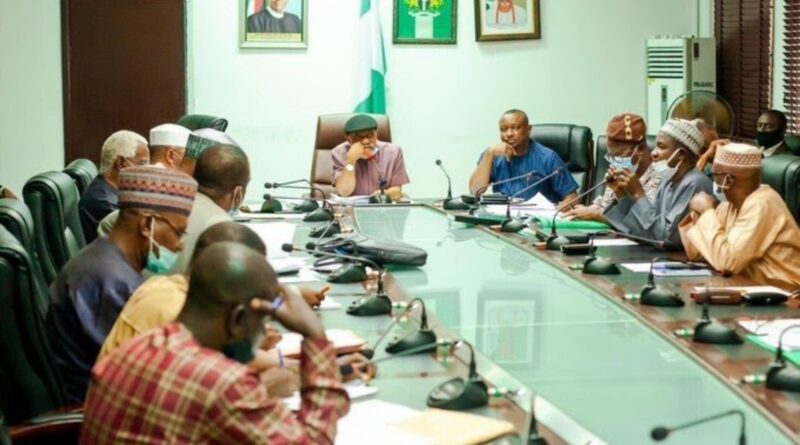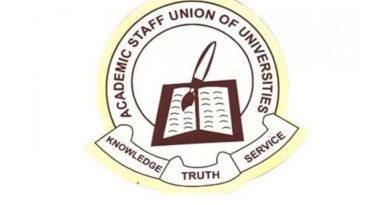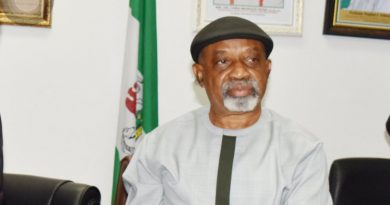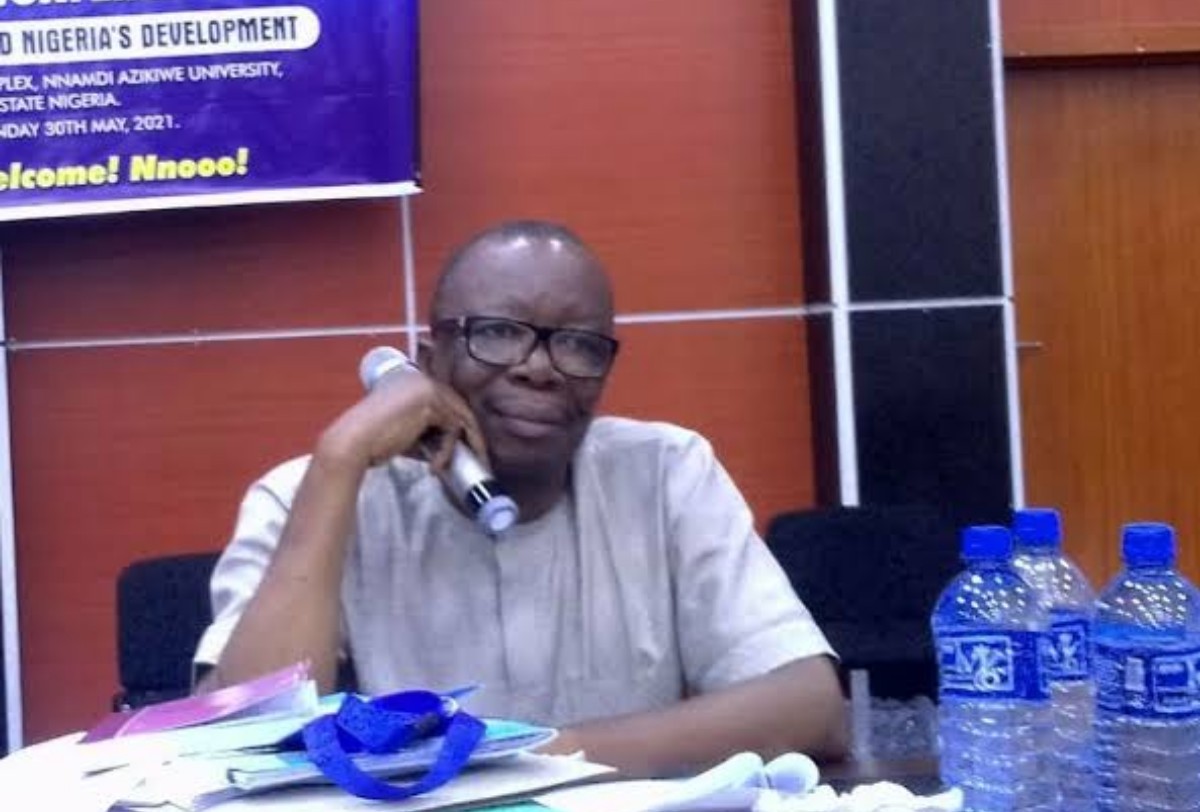STRIKE: FG Will Not Sign Agreement It Cannot Implement – Education Minister
By Kuni Tyessi
Against the background of the ongoing faceoff with the Academic Staff Union of Universities (ASUU) over alleged government failure to fulfil agreements reached with the union, the federal government has said it will not sign any other agreement it cannot implement. Minister of Education, Malam Adamu Adamu, disclosed this yesterday in Abuja during a meeting of Pro-Chancellors and Vice Chancellors of Federal Universities, held at the National Universities Commission (NUC).
Adamu said President Muhammadu Buhari warned the government team involved in the negotiation with ASUU against signing an agreement that government would not be able to fulfil.
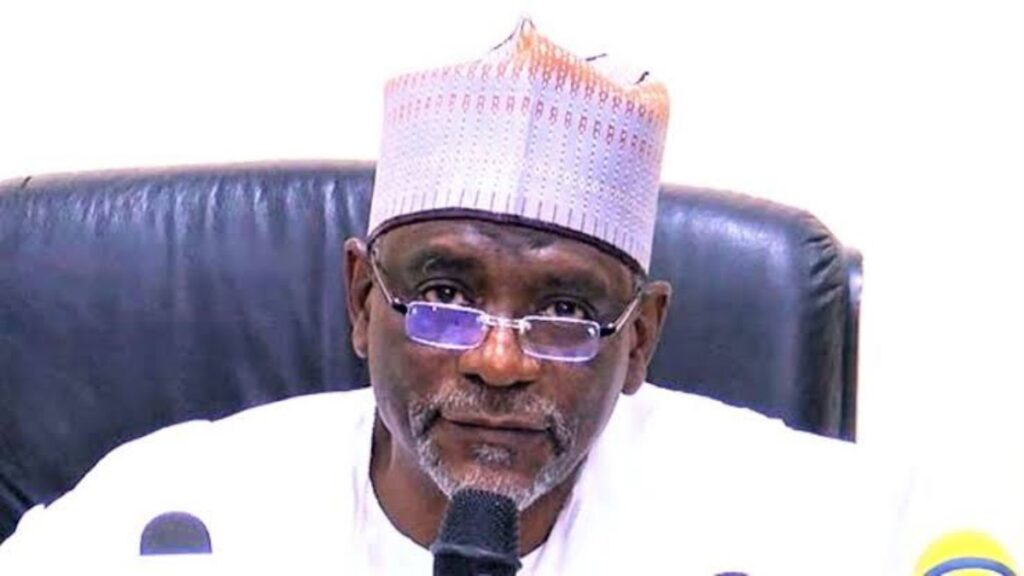
ASUU has been on strike for nearly seven months, since February 14, over the alleged unfulfilled deals. Among the lecturers’ demands are better funding and equipment of Nigerian public universities and increase in remunerations.
But Adamu said the federal government could only afford a “23.5 per cent salary increase for all categories of the workforce in federal universities, except for the professorial cadre which will enjoy a 35 per cent upward review.”
He also said N150 billion would be provided for in next year’s budget for the refurbishment of federal universities, with another N50 billion for the payment of outstanding academic staff allowances.
The minister said the meeting of the heads of universities, convened at the instance of NUC, became “necessary and urgent due to certain misconceptions and misinformation in the public domain, regarding the ongoing strike action by ASUU.”
Adamu told the Pro-Chancellors and Vice Chancellors, “Not only is our interaction today (September 6) necessary, it is also urgent to clarify the misrepresentations and draw your attention to the facts, which you, as managers of our universities, ought to know by virtue of your assigned duties.
“It is, indeed, one of your statutory duties to negotiate with your workers on matters of their welfare and conditions of service.”
He recalled that the “current industrial action in our public universities started on 14th February 2022, when ASUU commenced a two-week warning strike over the non-implementation of agreements reached between government and the union.
“In all we have been doing, our guide has been the directive of Mr. President Muhammadu Buhari, namely, that while the unions should be persuaded to return to work, government should not repeat the past mistakes of accepting to sign an agreement it will be unable to implement.
“Government should not, in the guise of resolving current challenges, sow seeds for future disruptions.”
The minister stated, “To compound matters further, the three other university non-teaching staff unions – SSANU, NASU and NAAT – also declared trade disputes against the federal government and commenced nationwide industrial actions a few weeks later. NAAT started its strike on March 17, 2022 while the Joint Action Committee of SSANU and NASU followed suit on March 27, 2022.
“In response to the unions’ demands, the federal government reconstituted the FGN/University-based Unions 2009 Agreement Renegotiation Committee, with Professor Nimi Briggs as Chairman, on 7th March, 2022.
“The committee was charged with the responsibility of concluding the ongoing federal government renegotiation efforts with the university-based unions and producing appropriate solutions, workable and enduring agreements for the improvement of the Nigerian University System (NUS).”
The minister added, “While the Briggs committee was busy interacting with the unions on all the issues, a federal government inter-ministerial team, under the leadership of the Minister of Labour, Dr. Chris Ngige, was simultaneously engaging the unions and resolving some of their minor demands, such as salary shortages and payment of arrears of the minimum wage consequential adjustments as well as payment of promotion arrears.
“The Ministry of Finance, Budget and National Planning was able to resolve most of these issues by the end of July 2022.
“On May 12, 2022, about three months into the strike, a high powered Tripartite Plus Conciliation Meeting was held at State House Banquet Hall, at the instance of His Excellency, President Muhammadu Buhari, GCFR, with a view to finding solutions to those issues that were considered thorny and generic to both the teaching staff (ASUU) and non-teaching staff Unions (SSANU, NASU and NAAT).”
Adamu said two of the issues specified during the meeting were categorised under the University Transparency and Accountability Solutions (UTAS) by ASUU and the University Peculiar Personnel and Payroll System (U3PS) as well as the delay in Renegotiation of 2009 agreements -conditions of service, wages and allowances.
According to him, “It is important to note that this special conciliation meeting was chaired by the Chief of Staff to the President, Professor Ibrahim Gambari, and had in attendance the Secretary to the Government of the Federation (SGF), the Ministers of Labour, Education, and Finance, the Head of Service and top government officials.
“The meeting was also attended by the Sultan of Sokoto, the President of Christian Association of Nigeria (CAN), and all the other critical stakeholders, including the leadership of the four University-based Unions (ASUU, NASU, SSANU and NAAT).
“There were two major outcomes of the meeting. The first was the decision to test the two proposed salary payment solutions, developed by the unions namely, the UTAS proposed by ASUU and the U3PS, jointly proposed by SSANU and NASU.”
Adamu said soon after a Conciliatory Tripartite Meeting in May, the Briggs team concluded the re-negotiation with ASUU and produced a draft agreement, which was forwarded to the federal government, through the Minister of Education, for consideration and approval.
He stated, “Similarly, the re-negotiation with the non-teaching staff unions had since commenced, and an appreciable progress had been made towards producing the desired agreements for consideration and approval by their respective principals.
“In the course of the exercise, the FGN Team made several attempts to wade into the industrial crises between the FGN and the university-based Unions, with a view to finding a lasting and amicable solution to the challenges.
“After a series of meetings with His Excellency, Mr. President, and the Minister of Finance, Budget and National Planning; Minister of Labour and Productivity; Minister of Communications and Digital Economy as well as the DG of Budget and the Chairman, Salaries and Wages Commission and the Minister of Education, the Draft Agreement was critically reviewed and the proposed salary increment considered unrealistic and out of tune with the current realities of the national economy.”
On government’s offer, the minister said, “It was at this meeting that Mr. President approved that the Minister of Education should take over the negotiation and resolution of the crisis. Soon after the meeting, the Minister of Education conveyed the federal government’s offer to the Nimi Briggs Renegotiation Committee and to each of the four unions.
“The package offered centred around the four positions agreed upon by the government. It is as follows: that the federal government can only afford a 23.5 per cent salary increase for all categories of the workforce in federal universities, except for the professorial cadre which will enjoy a 35 per cent upward review;
“That henceforth allowances that pertain to ad-hoc duties of the academic and non-academic staff shall be paid as at when due by the Governing Councils of Universities to which such services are rendered and to the staff who perform them;
“That a sum of N150 billion shall be provided for in the 2023 budget as funds for the revitalisation of federal universities, to be disbursed to the institutions in the first quarter of the year.
“That a sum of N50 billion shall be provided for in the 2023 budget for the payment of outstanding arrears of earned academic allowances, to be paid in the first quarter of the year.”
However, the four university-based unions, in separate letters addressed to the chairman of the Government Re-negotiating team, rejected the government’s offer. They described the offer as too inadequate to meet their respective demands needed to tackle the challenges confronting the university system.
Meanwhile the federal government yesterday constituted another committee to look into the recommendations of the Briggs’ committee in charge of the renegotiation of the 2009 agreement between the government and the university-based staff unions.
The 14-man committee comprised some pro-chancellors, vice-chancellors, and other stakeholders.
The spokesperson for the Ministry of Education, Ben Goong, who briefed journalists after the meeting yesterday, noted that Adamu would chair the committee.
Adamu inaugurated the 14-man committee to look into the recommendations on the resolution of the lingering ASUU strike.
Members of the committee included Professor Olu Obafemi; Briggs; Udo Udoma; Bashir Dalhatu; Professor Kayode Adebowale (University of Ibadan); Professor Kabir Bala (Ahmadu Bello University, Zaria); Professor Lilian Salami (University of Benin); Professor Charles Igwe (University of Nigeria Nsukka); Registrar of the Joint Admissions and Matriculation Board, Professor Ishaq Oloyede; representatives of the Academy of Letters, Science, Medicine and Social Sciences.
The committee would also be chaired by Adamu.
©THISDAYLIVE

